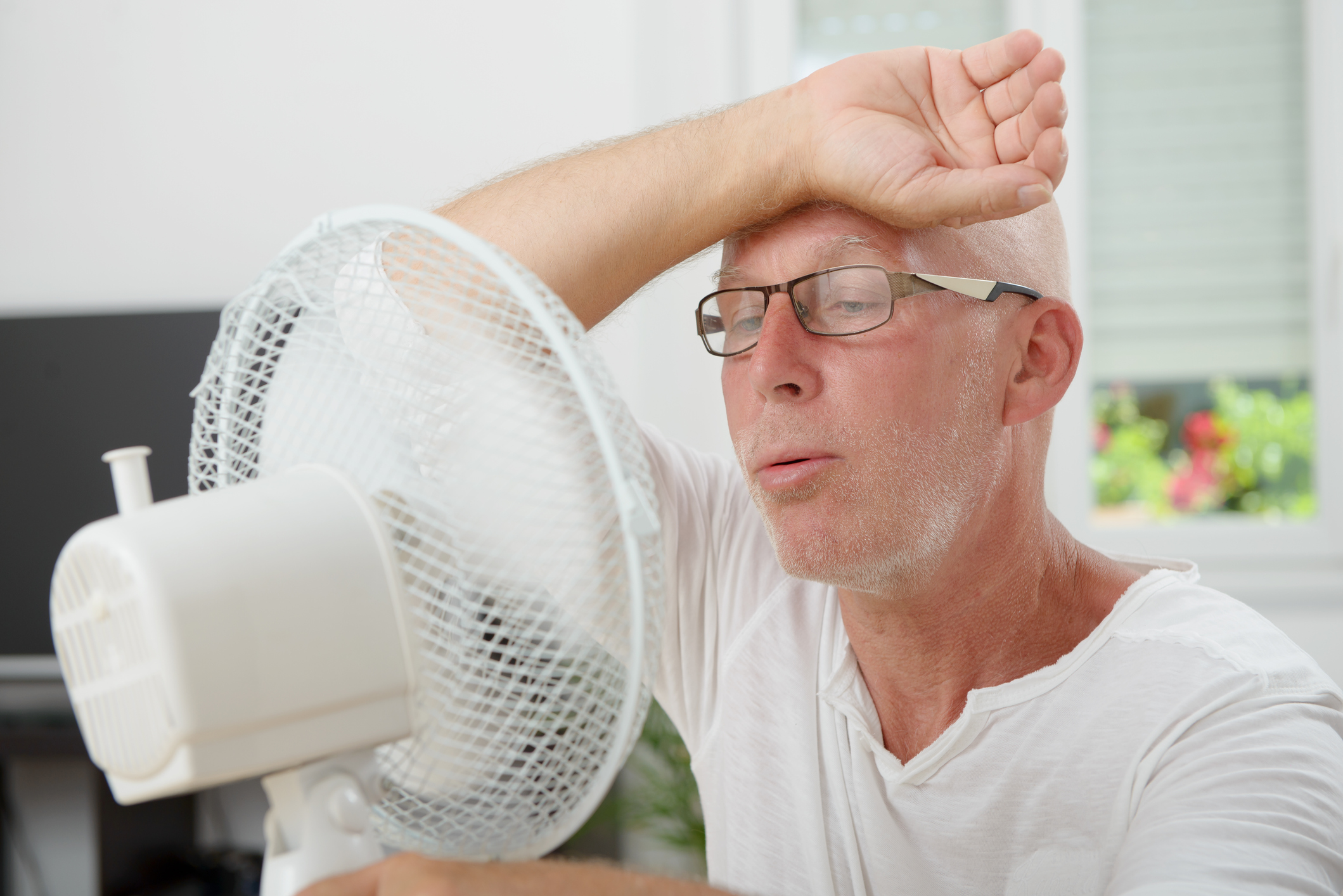

Do you have a harder time handling the increasingly hotter weather?
You might want to take a look at your medications.
That’s because, according to a review team of scientists in Singapore, prescriptions used to treat the chronic diseases that become more common as we age may also block your body’s thermoregulation abilities, leaving you baking as temperatures rise.
In fact, the scientists say that medications for four categories of conditions actually make it far more difficult for the human body to handle hot weather by reducing its ability to sweat or increase blood flow to the skin.
So which conditions (along with the medications used to treat them) can cause a weather worry?
Conditions treated with meds that get you hot under the collar
#1 – Cancer
Taking certain cancer medications and uncomfortable hot flashes often go hand-in-hand. And while exercising has been shown to help calm those power surges and improve thermoregulatory responses in other chronic conditions, like diabetes, cancer patients often suffer from additional issues that make exercising a no-go.
Luckily, there could be help available in an unlikely place – beer.
Researchers have discovered that the hops used to make those tasty suds offer multiple cancer-fighting properties. As an added bonus, hops have been used for decades by menopausal women thanks to their ability to combat hot flashes.
#2 – Heart disease
People who take medications for cardiovascular diseases, such as coronary heart disease, stroke and heart failure, are also more vulnerable when the mercury rises due to the increased work required of their hearts. As temperatures increase, the heart has to deliver more blood to the skin and muscles in order to maintain core temperature at an optimal level.
And certain heart medications can only increase the dangers.
Medications people with heart conditions need to watch out for include:
- Anti-platelet medications – Drugs like aspirin and clopidogrel, which are used to prevent blood clots can increase core temperature, whether at rest or during exercise. Additionally, these meds can also reduce blood flow to the skin and block sweat responses, making your body less sensitive to accumulated heat and slowing its ability to cool down, raising the risk of heat stroke.
- Beta-blockers – Medications used to treat heart conditions, like ischemic heart disease, high blood pressure and heart failure, called beta-blockers, can also cause problems when it’s hot outside. That’s because these drugs reduce skin blood flow during heat stress by reducing blood pressure, making it hard for your body to cool off. This can make a heart attack more likely.
#3 – Diabetes
If you have diabetes and find it hard to keep cool, your medications could be to blame. That’s because insulin, which is commonly used to reduce high blood sugar has been shown to impair your body’s ability to regulate heat properly. To make matters worse, insulin also raises metabolic heat production both at rest and during exercise, which can be fatal if your body can’t rid itself of the accumulated heat fast enough.
If that weren’t enough, another diabetes drug, metformin, can also cause problems on those hot days. Metformin can cause diarrhea and nausea, which lead to fluid loss, which increases your risk of dehydration and dramatically increases the strain on your heart.
#4 – Neurocognitive diseases
Finally, an inability to handle the heat can be caused by taking meds used to treat neurocognitive diseases like Parkinson’s and Alzheimer’s. Anticholinergics and cholinesterase inhibitors, as well as dopamine replacement agents and dopamine agonists, may all improve symptoms of these diseases, yet they may also reduce thermoregulation, impair sweat response and drive up your body’s core temperature.
All of this can lead to an increased risk of developing heat-related illnesses.
Stay cool and see if your meds are on the hot list
So if you feel like you just can’t get cool, the medications you’re taking could be at the heart of your problems.
Check your medicine cabinet for the drugs we discussed above that can play havoc with your body’s thermoregulation abilities and talk to your doctor. But be ready to be your own health advocate, since even your doctor may not understand just how much these drugs could affect you.
As Associate Professor, Melvin Leow, the review’s co-author and Senior Consultant Endocrinologist at Tan Tock Seng Hospital warns, “Physicians are often unaware of the potential harms certain drugs may cause by compromising the body’s thermoregulatory control mechanisms. This is an especially important area to delve into as those with chronic diseases and older adults are susceptible to adverse health outcomes in the heat, due to their reduced thermoregulatory capacity.”
Then follow these hot weather tips to keep your cool posted by Michigan Medicine.
Also, think about upping your vitamin C and nitric oxide to help your body cool itself better as long as your doctor doesn’t think they should interfere with your medication.
Sources:
Medications for chronic diseases affect the body’s ability to regulate body temperature, keep cool – EurekAlert!

